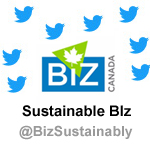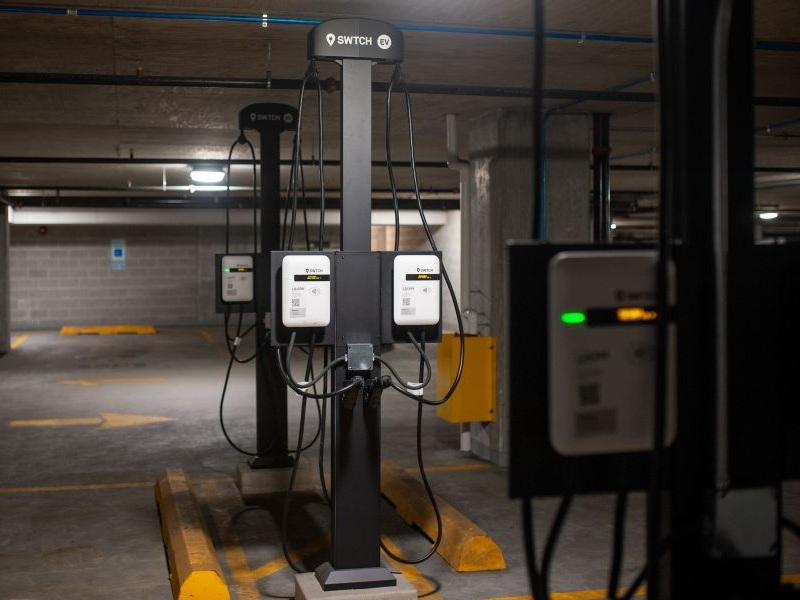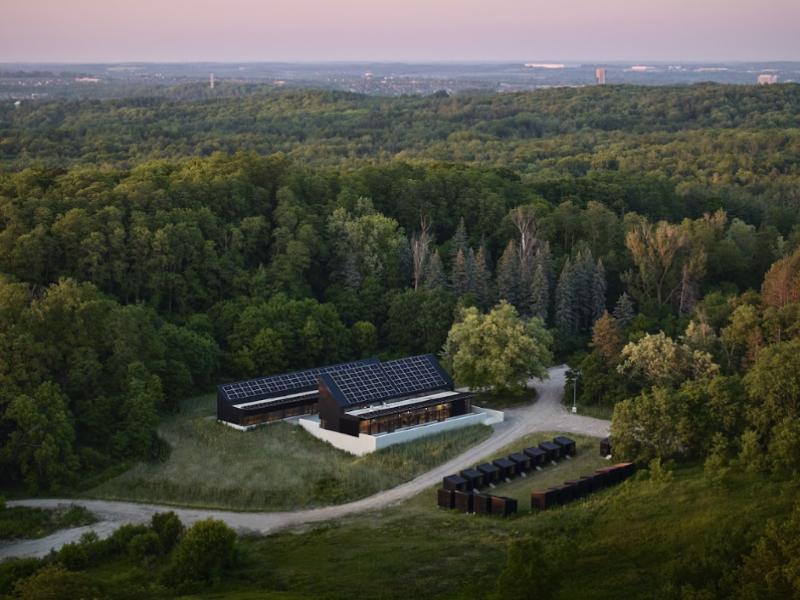Recent Articles
Kick-starting Passive House in Canada
Kick-starting Passive House in Canada
Canada should be leading North America in Passive House implementation for larger projects, but hasn’t advanced as quickly as it should, according to a leading practitioner in the field. “The climate is good for this type of building,” said Adam Cohen, the Roanoke, Va.-based founder and technical director of Build SMART and a board member of the non-profit Passive Buildings Canada.
Wilkinson Project: East Port’s new green building
The Wilkinson Project, a Dartmouth, N.S. warehouse that’s part of the Canada Green Building Council (CaGBC)’s zero carbon building pilot program, has signed its first tenant ahead of its anticipated spring 2018 opening. “The industrial real estate market in Canada is a huge opportunity that LEED was missing simply because it is difficult to certify a spec building when you don’t know how it will be used,” said Judy Wall, president of East Port Properties Limited, which owns The Wilkinson Project.
Zero Carbon Building Standard the next frontier for CRE
In December 2016, the Pan Canadian Framework cited sustainable buildings as one of the means to attain reductions in GHG emissions, specifying specific measures to help drive down the industry’s emissions. This watershed moment for the green building industry put a spotlight on building performance as a critical solution to climate change.
Discussion paper on a comprehensive building retrofit strategy
In order for Canada to achieve its climate targets emissions from existing buildings must be significantly reduced and construction practices must rapidly evolve to reach net-zero energy ready standards for new buildings. Shifting new construction to net-zero ready by around 2030 will not be sufficient to achieve deep emissions reductions in the building stock as a whole.
Canada’s existing buildings hold key to climate targets
Governments at all levels in Canada are moving toward requiring new homes and buildings to be constructed to low-carbon, ultra energy-efficient standards by 2030. But Canada still lacks a comprehensive strategy to achieve the significant reductions in carbon pollution from existing buildings that are necessary to meet our country’s climate targets.
Does ‘net zero’ live up to the hype?
I first become interested in zero energy buildings in 2003. Several things pulled me into the concept, and probably the most compelling aspect was the scale of the change. At the time, I was managing a municipal green building program and we were struggling to convince developers to make relatively minor incremental changes such as using low-e windows or high-efficiency furnaces.
Master plan to develop, restore, and protect Lethbridge River Valley
Lethbridge, Alberta’s city council has adopted a River Valley Parks Master Plan, which calls for all future roads and parking in the area to incorporate Low Impact Development (LID). The plan will provide a long-term strategy for protecting and sustainably managing natural areas in the Oldman River valley while developing nature-based recreational opportunities.
Water Canada – River Valley Parks Master Plan
 |
Harvey puts Texas grid resiliency to the test |
| Hurricane Harvey’s path of destruction has left hundreds of thousands of Texans without power, and the state’s utilities are facing days, or even weeks, before the floodwaters recede and they can begin to repair the damage. | |
| Green Tech Media, August 31, 2017 |
Shrum Chemistry Building at SFU earns LEED Canada Gold
Simon Fraser University is another step closer to achieving its vision of becoming a zero-waste university. The Shrum Chemistry Building on the Burnaby campus has just earned a LEED Gold rating for its renovations and upgrades. The Leadership in Energy and Environmental Design (LEED) Canada rating system is an internationally recognized mark of excellence for sustainable building.
Business case for WELL developing after first generation fitouts
Now that the first group of office fitouts to receive WELL certification has been completed, the business case can be analyzed. A few of the early adopters completed fitouts for less than $1 per square foot in additional costs. For the others, the cost to achieve WELL certification ranged from $1 to $4 per square foot, according to a report by the Urban Land Institute.
Contextualizing the circular economy in building design
When 2050 — that often-cited and seemingly distant milestone — comes around, I will still have a good decade of my career to go. With this in mind, it is vital that my generation participates in discussions shaping the future of our built environment. One such discussion point is the circular economy and how this can be made into a practical proposition in the built environment.
Green-collar workers will help shape Canada’s next-gen cities
Canada’s economy is inextricably linked to our infrastructure — and it’s always been so. Our nation and its economy would have developed very differently were it not for the construction of a transcontinental railway just fourteen years after Confederation in 1867. In the afterglow of Canada’s 150th anniversary, the country and the economy look vastly different than they did in 1881.
 |
Sinking land, rising risk for delta residents |
| Coastal deltas are becoming more at risk of flooding due to land subsidence, the gradual sinking of the Earth’s surface, and sea-level rise. Conventional protective infrastructure may reduce current risk but it doesn’t address underlying causes of subsidence. | |
| Green Biz, August 31, 2017 |
Solar PV Asset Management 2017-2022: A GTM report
The total installed base of operational PV systems surpassed 300 GW globally at the end of 2016. As the solar industry continues to mature, increased focus is turning to asset management, a term used in the power industry to describe the financial, commercial, legal and technical management of power plants and other assets.
‘Micropower’ proves its economic mettle
When the Economist’s Vijay Vaitheeswaran coined the term “micropower” in August 2000, he predicted that the world soon would move away from huge, centralized power plants in favor of smaller power sources. With micropower generating over one-fourth of the world’s electricity (28 percent) Vaitheeswaran’s future may be right around the corner.
How climate change could turn US real estate prices upside down
If Florida gleaned anything from Hurricane Andrew, the intensely powerful storm that tore a deadly trail of destruction across Miami-Dade County almost exactly 25 years to the day, it was that living in areas exposed to the wrath of Mother Nature can come at a substantial cost. Andrew changed the way insurance companies assessed their exposure to risk for weather-related events.
Lessons from China’s ambitious green building movement
China has grand plans to green its buildings. The country’s national climate commitment calls for 50 percent of all new buildings constructed by 2020 to be certified green buildings (PDF), while its 13th Five-Year Plan prioritizes building efficiency. Following through on these commitments would grow the country’s green building sector from 5 to 28 percent by 2030 (PDF), representing a $12.9 trillion investment opportunity.
Market Trends and Research
Getting into the weeds of DOE’s grid report
GTM Research and Wood Mackenzie find the gems in the 187-page report on grid reliability and resiliency, renewable energy, and nuclear and coal power.
Green Tech Media (Requires subscription)
Jargon watch cites “predatory delay”
Twitter can be an incredible time suck, but also an incredibly valuable tool of communication, as demonstrated my a true master of the medium, Alex Steffen. In a recent tweetstorm, Alex looks at Houston (and a lot of other events) in new and different terms: Predatory delay: “the blocking or slowing of needed change, in order to make money off unsustainable, unjust systems in the meantime.”
Market trends and research
What can we learn from Hurricane Harvey?
A Canadian catastrophic loss expert believes Canada can learn a thing or two from tropical storm Harvey. Flooding is slowly becoming one of Canada’s biggest concerns, with experts saying climate change is exacerbating the problem. Just last April and May, parts of Montreal experienced large-scale flooding, which forced the city to provide nearly $9 million in financial compensation to affected residents.
Commercial real estate
‘Offices of the future’ for employees to exercise, escape and expand
Lines between work and home are blurring. We might be spending more hours at the office, or more hours working from home — or both. If work spaces are now living spaces, developers, designers, architects and employers have increasingly crucial imperatives — keeping employees healthy and happy.
Open office or private office? It depends
A new approach from Steelcase suggests that it could be a little of both. Whenever we write about open offices, I get serious pushback from writers of words and writers of code, who complain that they work better in private offices. My arguments that open offices are better for the exchange of ideas and for cooperative work fall on the deaf ears of people who, like Greta Garbo, just vant to be alone.
Renewable Energy
Australia generates enough renewable energy to power 70% of homes
Australia has sharpened its focus on transitioning to cleaner power. The country has increased renewable energy projects and is looking for grid-scale energy storage to support it. With all of that forward momentum, Australia has hit a pretty spectacular milestone. The renewable energy sector now generates enough electricity to power 70% of the country’s homes.
Corporate Sustainability
Greenhouse gas emissions: Worlds’ most responsible companies
Planet Earth is looking at a worrisome future, largely due to reckless human activity. While some are unaware of the risks of global warming or simply don’t believe they exist, others are actively looking for ways to slow down if not stop the downward path to avoid the catastrophic trend caused by carbon emissions.
3 factors that make Costco America’s best employer
Costco Wholesale moved in front of Google to earn the title of America’s best large employer this year. To determine America’s best employer each year, Statista and Forbes survey 30,000 workers at US organizations, asking them questions about their work experience. Costco has consistently appeared in the top three.
How cloud computing is helping companies stay green
Cloud computing is now being used by a wide variety of businesses around the world. Both large corporations and small businesses are now taking advantage of what it can offer. There are many benefits of using cloud computing.
Cities and Towns
New York’s challenge to design a truly ‘blue’ dune
While atmospheric scientists cannot predict when extreme weather events will strike or with what impact, it is inevitable that another major storm event, whether a hurricane or nor’easter, will hit the Mid-Atlantic coast sooner rather than later. When these storms arrive, the economic burdens will continue to be borne by a diverse range of public and private stakeholders with little relief in sight.
Green for wellbeing and urban spaces that heal us
One in five Australians will suffer from a mental health issue this year and living in a city makes it far more likely. Research shows that city dwellers have an almost 40 per cent greater likelihood of developing depression. Promisingly, however, research has also found that people in urban areas who live closest to the greatest “green space” are significantly less likely to suffer poor mental health.
Transit, bikes and transportation
Are the roads being overrun by dangerous irresponsible cyclists?
Last year pedestrian Kim Briggs was hit by a bike in London, a “fixie” track bike without brakes (which is illegal), ridden by a jerk named Charlie Alliston. After the crash, Alliston continued being a jerk, writing on a cycling site that it was her fault, that he did not feel any guilt at all.
Other
 |
Sustainable Biz followers on Twitter |
| Follower The Buildings Performance Institute EU is a Brussels based think-tank delivering policy analysis, advice and implementation support for buildings energy performance. | |
| Follow BizSustainably, the most comprehensive news feed on Twitter for Canadian business concerned about sustainability. |
 Industry Events
Industry Events
-
ECO IMPACT 2026
Feb 19 2026
to Feb 20 2026
The Westin Calgary
-
BuildGreen Atlantic
Apr 27 2026
to Apr 28 2026
Halifax, NS
-
The Evergreen Conference
May 06 2026
to May 07 2026
Toronto, ON
-
Building Lasting Change
Jun 17 2026
to Jun 19 2026
Montréal, QC
-
Retrofit Canada Conference
Jun 24 2026
to Jun 25 2026
Halifax Convention Center









